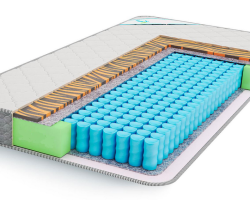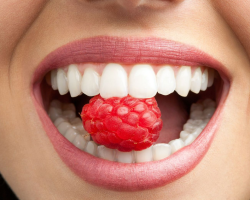The most important mediators in the human nervous system: dopamine, norepinephrine, acetylcholine, serotonin, gamet. Their understandable description and role.
Content
- Dopamine - mediator of happiness
- Norepinephrine - warrior mediator
- Acetylcholine mediator - calm molecule
- Mediator Serotonin - Forget everything bad
- GABK Mediator or sell me smartness
- Glycine mediators and adenosine - fatigue molecules
- Different glutamate: food and transmission of signals in the brain
- Video: Brain and GABK
Our nervous system transmits signals using chemicals, or special molecules. These are mediators of the central nervous system, there are a lot of neurotransmitters: these are dopamine, acetylcholine, adrenaline, norepinephrine, game and each of them has its own special role. We will talk about this in this article.
Dopamine - mediator of happiness
Dopamine can be called the main mediator in the nervous system. Why so, because all mediators are important, you ask. Because dopamine is a "molecule of happiness."
- Dopamine mediator stands out when we are in a joyful anticipation of pleasure.
- It depends on the level of dopamine how much we love to move: play sports, dance, or just go somewhere to walk without a specific purpose.
- Dopamine directly affects some centers of the brain, in particular, the zone that is responsible for the libido. So the degree of sex drive also depends on the level of dopamine.
- Dopamine is also associated with the center of aggression. The more dopamine, the more aggressive desires a person experiences. If self -control is weak, then it can become impulsive and aggressive.

Below is a list of known chemicals that affect the level of dopamine. And they all affect the level of dopamine in different ways:
- Alcohol - increases the level of dopamine. But only in small doses. The upsurge, increased performance, sociability, usually occurs only after taking a small amount of ethyl alcohol. Further alcohol acts on the nervous system already differently. He slows down another mediator - GABA. And the brain begins to solve logical problems worse.
- Antipsychotic - These are medicines that are prescribed to patients with schizophrenia and people suffering from other psychoses. With schizophrenia, the mediator dopamine plays a key role. For some reason, his level rises, why this happens, no one knows for sure. But it is known that substances reducing dopamine reducing the symptoms of psychosis effectively eliminate. The first antipsychotics of famous people was Aminazin. Then other drugs with the same action appeared.
- L-Dopa or Levodop - This is the substance of the predecessor of dopamine and the medicine for those who suffer from Parkinson's disease. A disease that is characterized by constant trembling in the limbs, limited motor activity, and poor mood. Pacingson's disease is the reverse side of schizophrenia. If there is too much dopamine with schizophrenia, then with Parkinson's illness there is too little. The cells in the brain that produce dopamine at the same time gradually and inexorably disappear.
Trying to influence the level of dopamine foods is not very effective. The body produces dopamine from levodopa. And the predecessor of Levodopa is a tyirazine or vitamin B1. But to say that with the help of food products, you can effectively adjust the level of dopamine - bust. The level of neurotransmitters is a fairly stable thing.

Norepinephrine - warrior mediator
Norepinephrine mediator helps people cope with the most difficult situations. Norepinephrine stands out in stressful situations and helps to make correct and bold decisions in them.
If, for example, you walked with your beloved dog, a flock of stray dogs attacked it. And you dispersed them so confidently and with such anger that even the dogs felt it. Then, at this moment, norepinephrine led your behavior.
Norepinephrine is the opposite of acetylcholine. A person has a sympathetic and parasympathetic nervous system. The sympathetic nervous system is turned on when you need to actively act. In this case, blood pressure increases, pulse quickens, more oxygen comes to the muscles, and intestinal motility slows down. And the parasympathetic system works when we are at rest. Norepinephrine is considered the main mediator of the sympathetic nervous system. And the most important mediator of the parasympathetic nervous system is acetylcholine.
In oriental martial arts, much attention is paid to teaching restraint, the ability to calm down and judgment. And this is not by chance. Norepinephrine is a mediator of active actions and stress. After his strong release, with the same force, acetylcholine is also thrown out.
Figuratively, this can be imagined as a pendulum or swing. The swings can swing strongly, or they can a little. If you ride a swing strongly and for a long time, you can dizzy and rocking. The same thing happens with not trained people due to strong stress and “swinging” neurotransmitters.

Acetylcholine mediator - calm molecule
Acetylcholine mediator is an important link in the parasympathetic nervous system, that is, the one that works at rest. Acetylcholine in the human body is greater and it is produced more often than, for example, norepinephrine.
But acetylcholine is not a mediator, but calm wakefulness. During sleep, in general, the level of many neurotransmitters falls, including acetylcholine. Acetylcholine plays an important role in the process of falling asleep, we fall into dreams, just when acetylcholine falls.
Figuratively explain what such acetylcholine can describe a person of restrained, with a calm character and natural judgment.
The level of acetylcholine can be tried to adjust. This is done medication for some patients with severe pathologies. Smoking also affects the level of acetylcholine. But, interference in the operation of the acetylcholine system is always quite rude. Therefore, it is not necessary to do this without an extreme need.
Intervention in the work of neurotransmitters sometimes resembles attempts by a primitive person to repair the plane with a sledgehammer.

Mediator Serotonin - Forget everything bad
Serotonin is the mediator of the central nervous system, which performs many functions. But the most special of them is control over the centers of negative emotions in the brain. Serotonin is a molecule that makes you forget resentment, muffles guilt, treats grief.
Good or bad - the question is a little controversial. On the one hand, this is important, and so that serotonin, in principle, has this role. Forget the bad and move on is necessary. On the other hand, conclusions must be drawn from troubles and errors. And these are the functions of a person’s higher nervous activity and depends on such a deep concept as awareness.
Many modern antidepressants, Increase serotonin levels. They do not increase the production of this centiator of the central nervous system, but block the enzyme that destroys serotonin molecule. Such drugs are also called selective inhibitors of the reverse capture. They are prescribed for depression and anxiety disorders.
It is interesting that serotonin, as well as dopamine, Sometimes they call the hormone happiness. But dopamine activating the centiator of the central nervous system, and serotonin is inhibitory. It is also known that norepinephrine Inhibits serotonin emissions. That is, when norepinephrine is released, serotonin, on the contrary, becomes less. This is one examples of the complex influence of the mediators of the central nervous system on each other.

GABK Mediator or sell me smartness
Drugs containing an analogue of GABA can really be bought at a pharmacy. And unlike other substitutes for mediators, they are not considered harmful. For example, Phoenibut or Noobut \u200b\u200bis recommended for schoolchildren and students during the exams. They are advised to other people who have a lot of mental stress. According to some reports, these drugs are effective in the treatment of alcoholics. A group of drugs containing a substance with a structure as a GABA is called nootropics.

Initially, a GABA, or gamma-amino-melting acid, I passed the attention of scientists. There are a lot of this substance in the brain, it is so much that scientists did not suggest that the GABA is the central nervous system mediator. The nervous system uses the GABA not only as a mediator, but also as a delicious food for nerve cells.
At first, the researchers believed that the brake mediators of the central nervous system did not play any important role. But it turned out that this is far from the case. Inhibition is a complex process that requires resources, and useful. For example, a child who was only seated at the desk needs a lot of effort so as not to indulge and listen to the teachers.
Glycine mediators and adenosine - fatigue molecules
Glycine acts only on one type of neurons in the brain, namely on motor neurons. These neurons and glycine work in a kind of fuse. It is they who cause a feeling of fatigue and reduce all the functions of the body when we work too intensively.
Motoneurons are not only in the brain, but also in many other parts of the body. And there another molecule, adenosine, acts on them. Coffee can join motor neurons in those places where adenosine should be attached. So the drink blocks the feeling of fatigue.

Different glutamate: food and transmission of signals in the brain
There is a significant difference between glutamate from food and glutamate that the human body itself produces.
- Glutamate from food It is used simply as building material. It signals the body that it receives precisely protein food of animal origin. Such food is more nutritious than plant. In a person, a person even has special receptors that respond specifically to glutamate. Food manufacturers use glutamate as a food supplement.
- Glutamate as a neurotransmitter It is also very important. In total, about 40 percent of the information is transmitted precisely using glutamate. This molecule helps to transfer visual, auditory and sensory data streams. It is also needed for the work of memory.
On our site you can find other interesting articles about the mediators of the central nervous system and hormones:
- Acetylcholine is a mediator supporting balance in the nervous system.
- Adrenaline is a neurotransmitter and a medical drug.
- High and low cortisol causes and consequences.
- Endocrine system: structure, functions, hormones.







